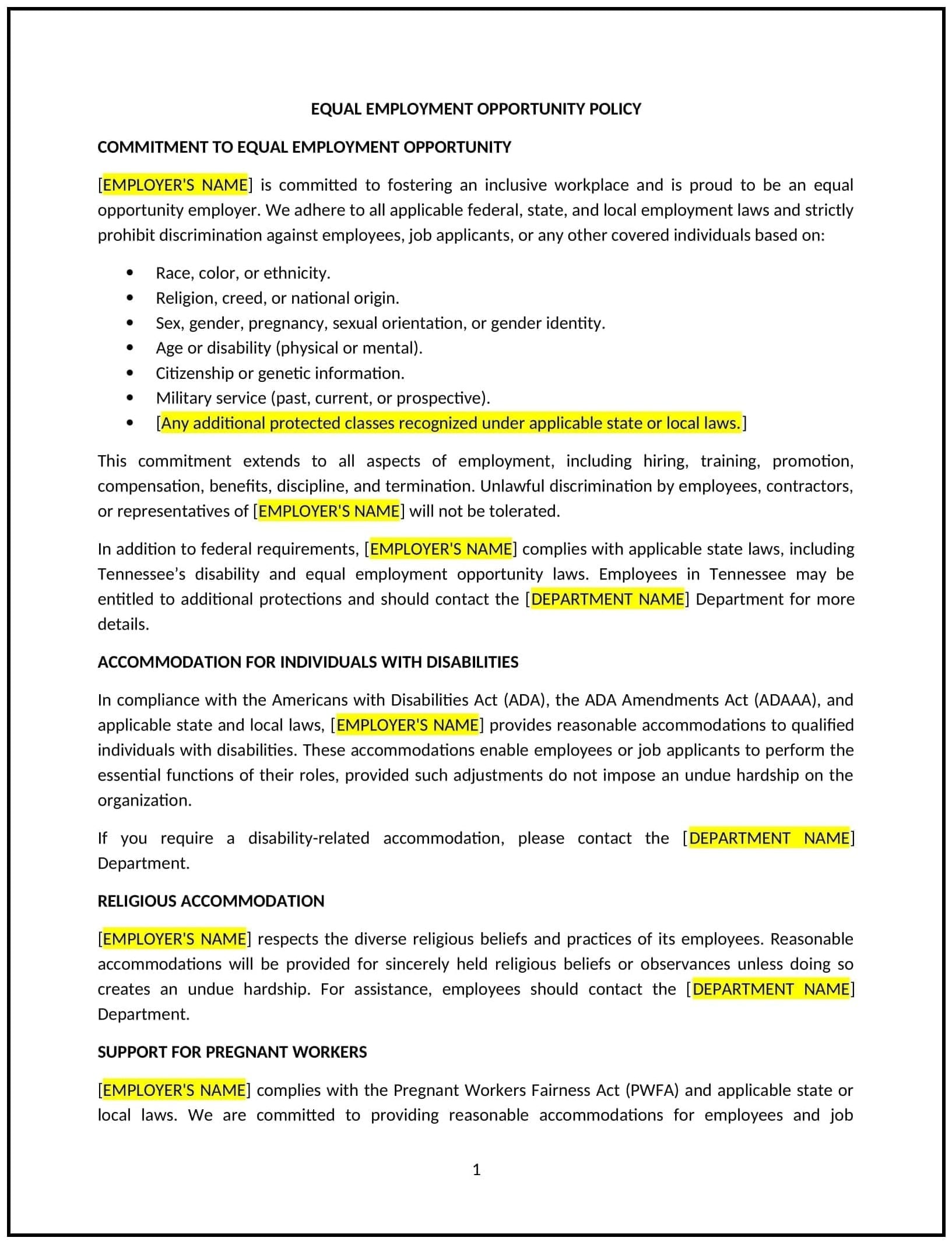Equal employment opportunity policy (Tennessee): Free template
Got contracts to review? While you're here for policies, let Cobrief make contract review effortless—start your free review now.

Customize this template for free
Equal employment opportunity policy (Tennessee)
This equal employment opportunity (EEO) policy is designed to help Tennessee businesses establish guidelines for promoting fairness and preventing discrimination in the workplace. It outlines procedures for ensuring all employees and applicants are treated equally, regardless of protected characteristics.
By adopting this policy, businesses can foster an inclusive workplace, reduce legal risks, and align with federal and state anti-discrimination laws.
How to use this equal employment opportunity policy (Tennessee)
- Define protected characteristics: Clarify which characteristics are protected, such as race, gender, religion, or disability.
- Set hiring practices: Outline steps for ensuring fair and unbiased recruitment processes.
- Address workplace behavior: Provide guidelines for promoting respect and inclusivity in daily interactions.
- Train employees: Educate staff on EEO principles and preventing discrimination.
- Review and update: Assess the policy annually to ensure it aligns with evolving business needs and legal standards.
Benefits of using this equal employment opportunity policy (Tennessee)
This policy offers several advantages for Tennessee businesses:
- Promotes fairness: Ensures all employees and applicants are treated equally.
- Reduces legal risks: Minimizes the risk of discrimination claims or lawsuits.
- Enhances workplace culture: Fosters respect, collaboration, and inclusivity.
- Attracts diverse talent: Demonstrates a commitment to creating an inclusive workplace.
- Aligns with best practices: Supports a structured approach to equal opportunity.
Tips for using this equal employment opportunity policy (Tennessee)
- Communicate the policy: Share the policy with employees and include it in the employee handbook.
- Provide training: Educate staff on EEO principles and preventing discrimination.
- Monitor compliance: Regularly review hiring practices and workplace behavior.
- Address issues promptly: Take corrective action if discrimination or bias is reported.
- Update regularly: Assess the policy annually to ensure it aligns with evolving business needs.